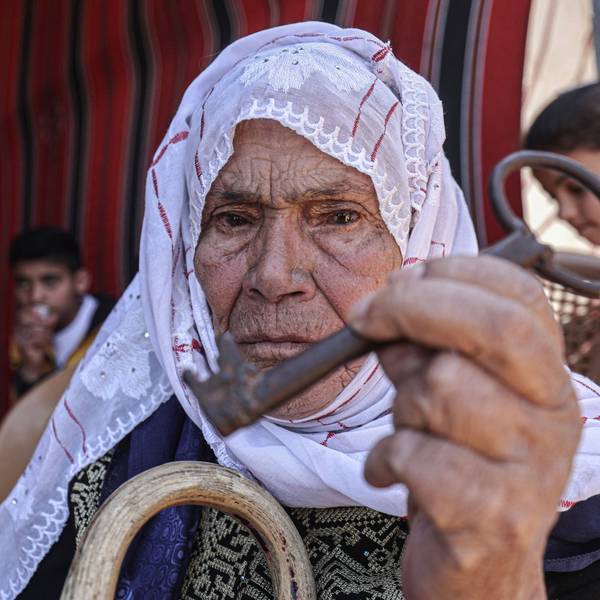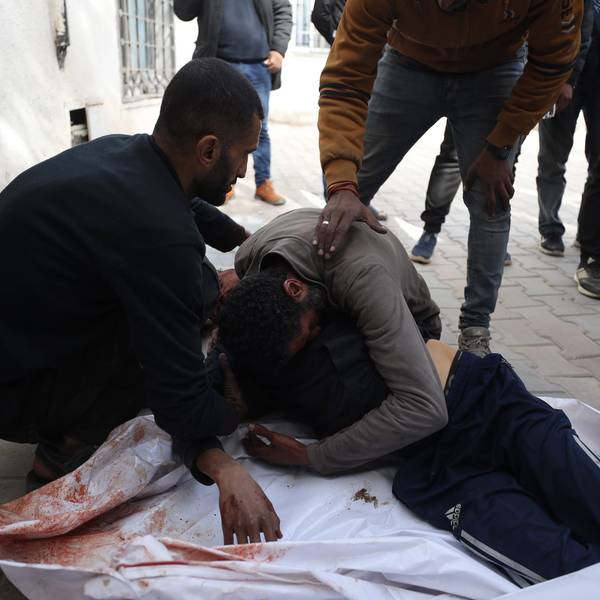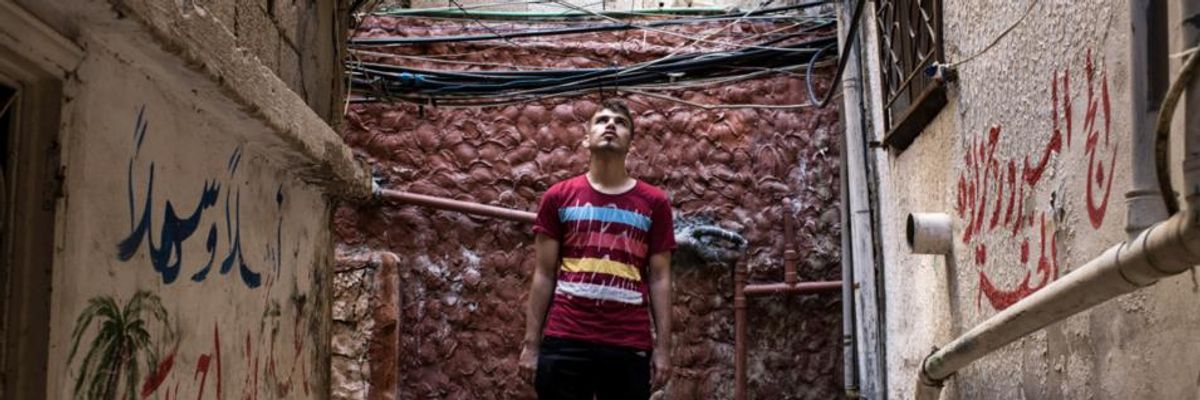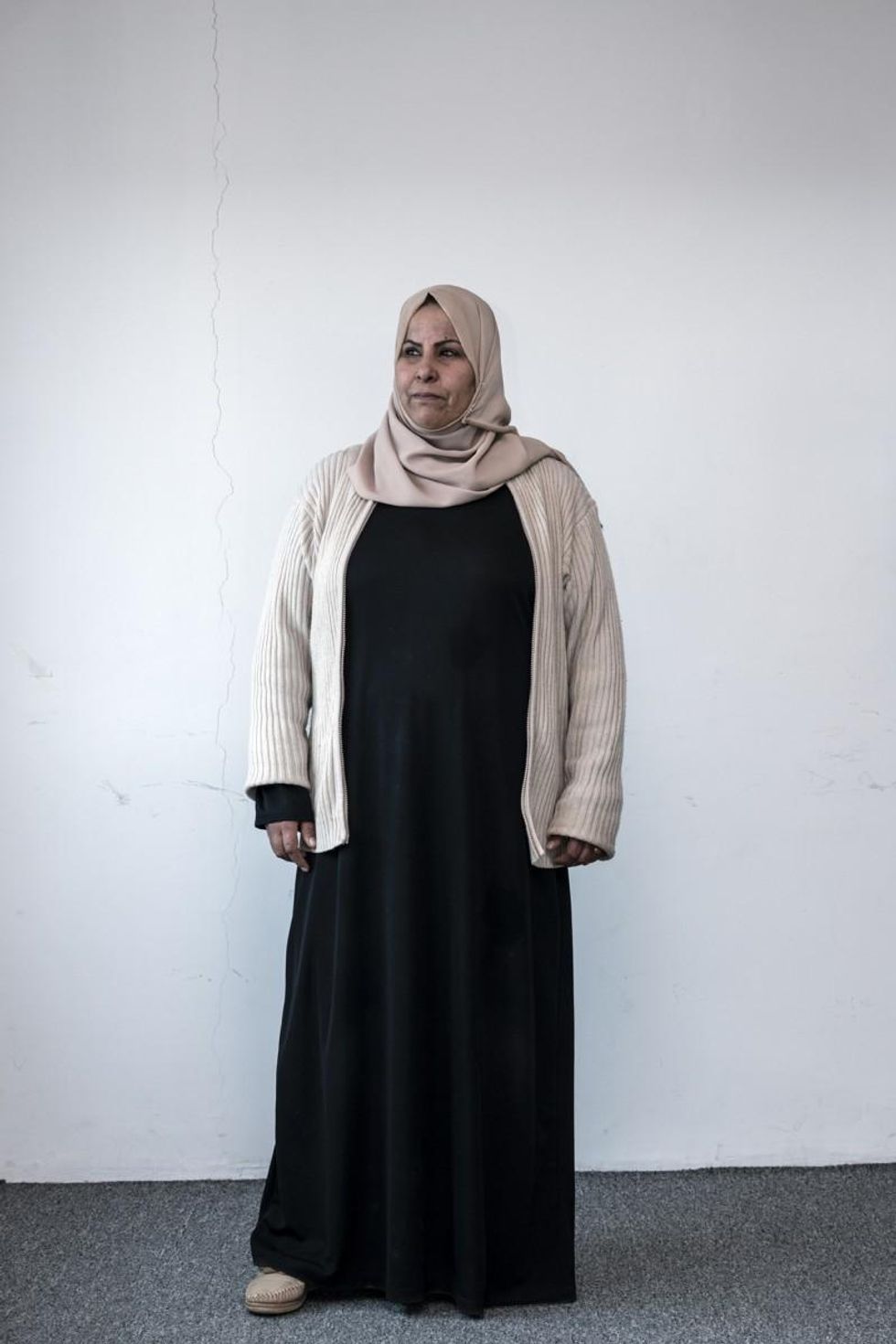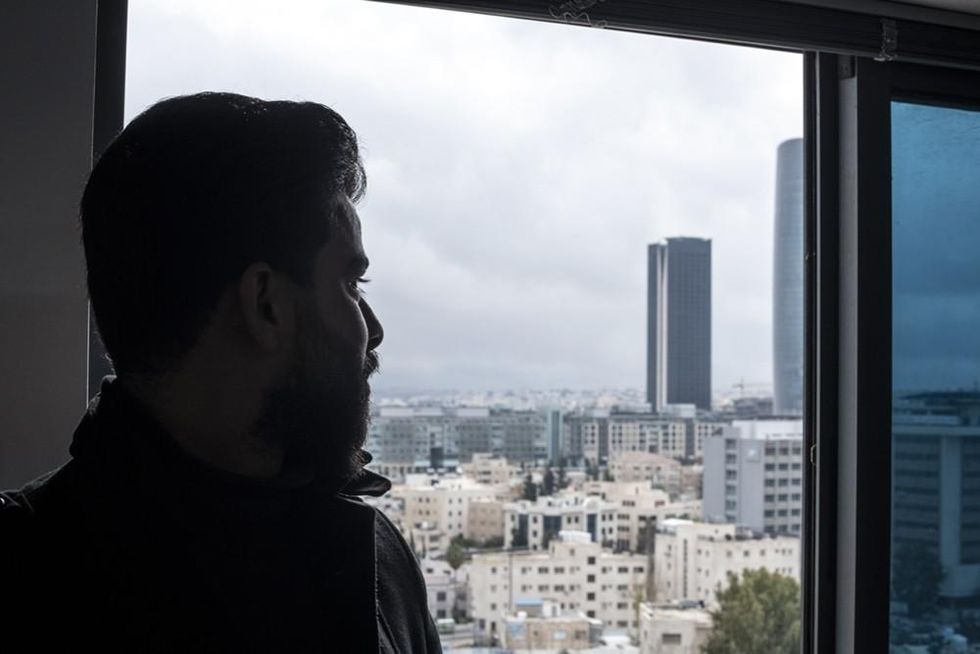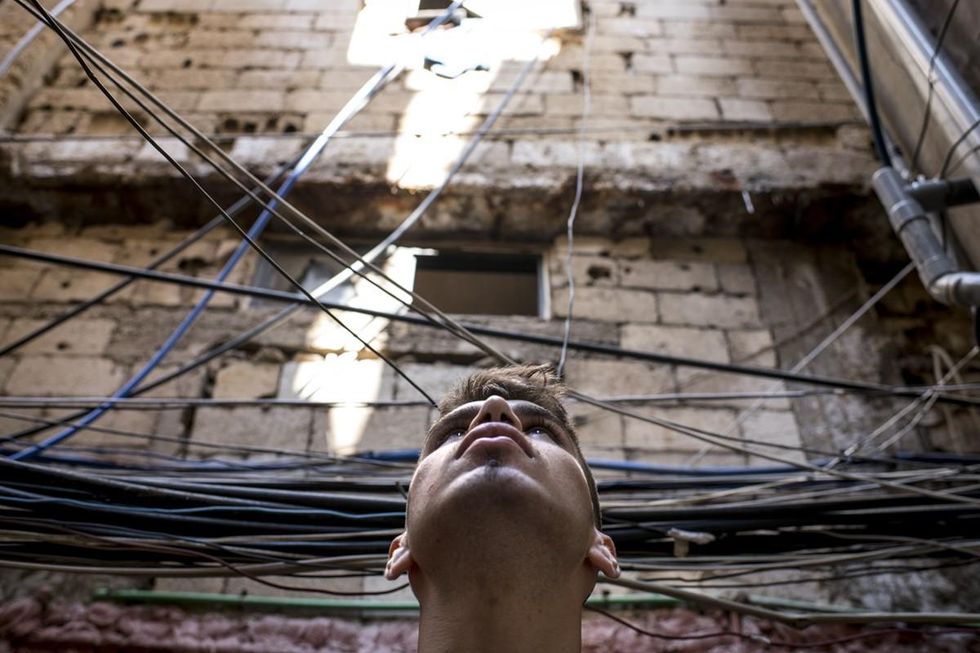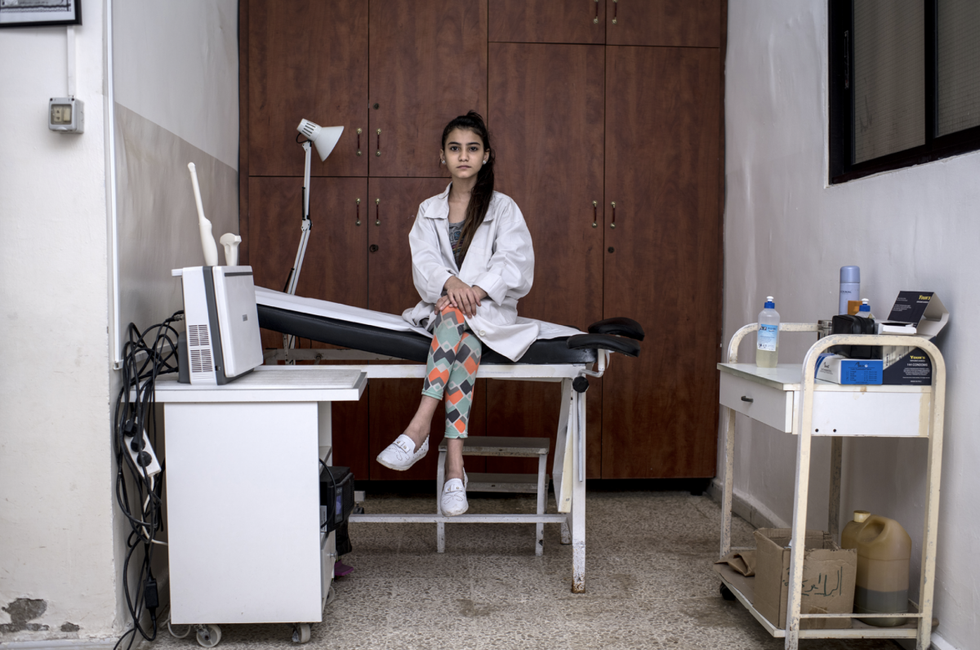On the eve of Nakba Day, which commemorates the mass displacement of Palestinians due to the creation of Israel in 1948, Amnesty International shared new testimonies from Palestinian refugees and urged people around the world to pressure the Israeli government to respect their right to return.
"More than 70 years after the conflict that followed Israel's creation, the Palestinian refugees who were forced out of their homes and dispossessed of their land as a result continue to face the devastating consequences."
--Philip Luther, Amnesty International
"The Nakba (catastrophe in Arabic) saw the state of Israel established, 750,000 Palestinians forced into exile, and over 500 Palestinian villages and towns destroyed," British Palestinian scholar-activist Yara Hawari wrote at openDemocracy last year. "Palestinian society was torn apart and Palestinians were geographically fragmented."
On Tuesday, Amnesty International denounced Israel's refusal to grant Palestinian refugees their right to return as "a flagrant violation of international law." The human rights advocacy group also published stories from refugees living in Lebanon and Jordan that demonstrate how Israel's position has fueled "seven decades of misery."
"More than 70 years after the conflict that followed Israel's creation, the Palestinian refugees who were forced out of their homes and dispossessed of their land as a result continue to face the devastating consequences," Philip Luther, Amnesty International's research and advocacy director for the Middle East and North Africa, said in a statement.
"Palestinian refugees in Lebanon, Jordan, and the Occupied Palestinian Territories are trapped in a cycle of deprivation and systematic discrimination with no end in sight," he added. "For many of them life is full of suffocating restrictions and has become a living hell."
About 2.1 million of the 5.2 million registered Palestinian refugees reside in Jordan. The country has granted the majority of them citizenship--which enables them to access healthcare and education--but more than a quarter of the refugees still have not been naturalized, so they can't sufficiently use public services, according to the human rights group.
"I grew up in the hope that tomorrow we will return to Palestine but instead we stayed in houses made of asbestos sheets."
--Jundia Awwad, refugee in Jordan
Some 370,000 of the refugees in Jordan live in camps--including 48-year-old Jundia Awwad. She was born in Jordan, but her family comes from what is now considered southern Israel.
"I grew up in the hope that tomorrow we will return to Palestine but instead we stayed in houses made of asbestos sheets," Awwad said, describing conditions at the Jerash refugee camp. "I want to live like other human beings. I want healthcare, proper education, and infrastructure. I want equality."
Mohamad Rayan, who is 27, was born and raised in Jerash camp. He has a degree in civil engineering, but without Jordanian citizenship, he lacks a national identity number.
"After I graduated, all doors got locked in my face," Rayan told Amnesty. "I cannot work in my profession because I do not have a national number. Instead, I work in carpentry. I feel dead in this country. There is no hope."
In Lebanon, even refugees who are born in the country cannot attain citizenship, so they lack access to basic services. Additionally, Amnesty explained, Lebanon's "discriminatory" laws that block Palestinian refugees from practicing professions such as medicine and law have "trapped" many of them "in deprivation and poverty."
Mohammad Adnan Ali, a 21-year-old refugee, told the group that such restrictions crushed his dream of becoming a dentist. "I am surrounded by poverty," he said. "I want to create a better life for myself, away from all of this misery."
Sara Akram Abu Shaker, who is 14, has chosen to pursue medicine in spite of Lebanon's laws. "Even if I can't be a doctor here, I could go to Palestine and help those in need, particularly the underprivileged children," she said. "I want to save lives."
Amnesty International teamed up with photographer Tanya Habjouqa to share their and others' stories on a website, 70+ Years of Suffocation, which highlights not only the refugees' current struggles, but also a desire shared by many of them to return to the land they or their ancestors once called home.
"There can be no lasting solution to the Palestinian refugee crisis until Israel respects Palestinian refugees' right to return," said Luther. "In the meantime, Lebanese and Jordanian authorities must do everything in their power to minimize the suffering of Palestinian refugees by repealing discriminatory laws and removing obstacles blocking refugees' access to employment and essential services."


